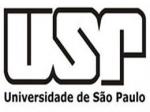Pathologic findings and causes of death of stranded cetaceans in the Canary Islands (2006-2012)
PLoS ONE publica este artículo de investigación
5 de octubre de 2018
This study describes the pathologic findings and most probable causes of death (CD) of 224 cetaceans stranded along the coastline of the Canary Islands (Spain) over a 7-year period, 2006-2012. Most probable CD, grouped as pathologic categories (PCs), was identified in 208/224 (92.8%) examined animals. Within natural PCs, those associated with good nutritional status represented 70/208 (33.6%), whereas, those associated with significant loss of nutritional status represented 49/208 (23.5%). Fatal intra- and interspecific traumatic interactions were 37/208 (17.8%). Vessel collisions included 24/208 (11.5%). Neonatal/perinatal pathology involved 13/208 (6.2%). Fatal interaction with fishing activities comprised 10/208 (4.8%). Within anthropogenic PCs, foreign body-associated pathology represented 5/208 (2.4%). A CD could not be determined in 16/208 (7.7%) cases. Natural PCs were dominated by infectious and parasitic disease processes. Herein, our results suggest that between 2006 and 2012, in the Canary Islands, direct human activity appeared responsible for 19% of cetaceans deaths, while natural pathologies accounted for 81%. These results, integrating novel findings and published reports, aid in delineating baseline knowledge on cetacean pathology and may be of value to rehabilitators, caregivers, diagnosticians and future conservation policies
Diaz-Delgado J., Fernandez A., Sierra E., Sacchini S., Andrada M., Vela AI., Quesada-Canales O., Paz Y., Zucca D., Groch K. y Arbelo M.
| Instituto Universitario de Sanidad Animal y Seguridad Alimentaria (IUSA). Facultad de Veterinaria. Universidad de Las Palmas de Gran Canaria (ULPGC). | |
 | Laboratório de Patologia Comparada de Animais Selvagens. Faculdade de Medicina Veterinária e Zootecnia. Universidade de Sao Paulo (USP). |
 | Departamento de Sanidad Animal. Facultad de Veterinaria. Universidad Complutense (UCM). |
 | Servicio de Diagnóstico, Identificación y Caracterización Molecular (DICM). Centro de Vigilancia Sanitaria Veterinaria (VISAVET). Universidad Complutense (UCM). |
